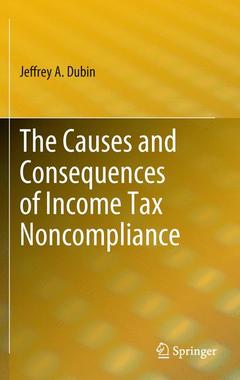Description
The Causes and Consequences of Income Tax Noncompliance, 2012
Author: Dubin Jeffrey A.
Language: English
Subjects for The Causes and Consequences of Income Tax Noncompliance:
282 p. · 15.5x23.5 cm · Paperback
282 p. · 15.5x23.5 cm · Hardback
Description
/li>Contents
/li>Comment
/li>
Taxpayer compliance is a voluntary activity, and the degree to which the tax system works is affected by taxpayers? knowledge that it is their moral and legal responsibility to pay their taxes. Taxpayers also recognize that they face a lottery in which not all taxpayer noncompliance will ever be detected. In the United States most individuals comply with the tax law, yet the tax gap has grown significantly over time for individual taxpayers. The US Internal Revenue Service attempts to ensure that the minority of taxpayers who are noncompliant pay their fair share with a variety of enforcement tools and penalties. The Causes and Consequences of Income Tax Noncompliance provides a comprehensive summary of the empirical evidence concerning taxpayer noncompliance and presents innovative research with new results on the role of IRS audit and enforcements activities on compliance with federal and state income tax collection. Other issues examined include to what degree taxpayers respond to the threat of civil and criminal enforcement and the important role of the media on taxpayer compliance. This book offers researchers, students, and tax administrators insight into the allocation of taxpayer compliance enforcement and service resources, and suggests policies that will prevent further increases in the tax gap. The book?s aggregate data analysis methods have practical applications not only to taxpayer compliance but also to other forms of economic behavior, such as welfare fraud.
These books may interest you

Tax Summary 2015 & 2016 114.63 €



